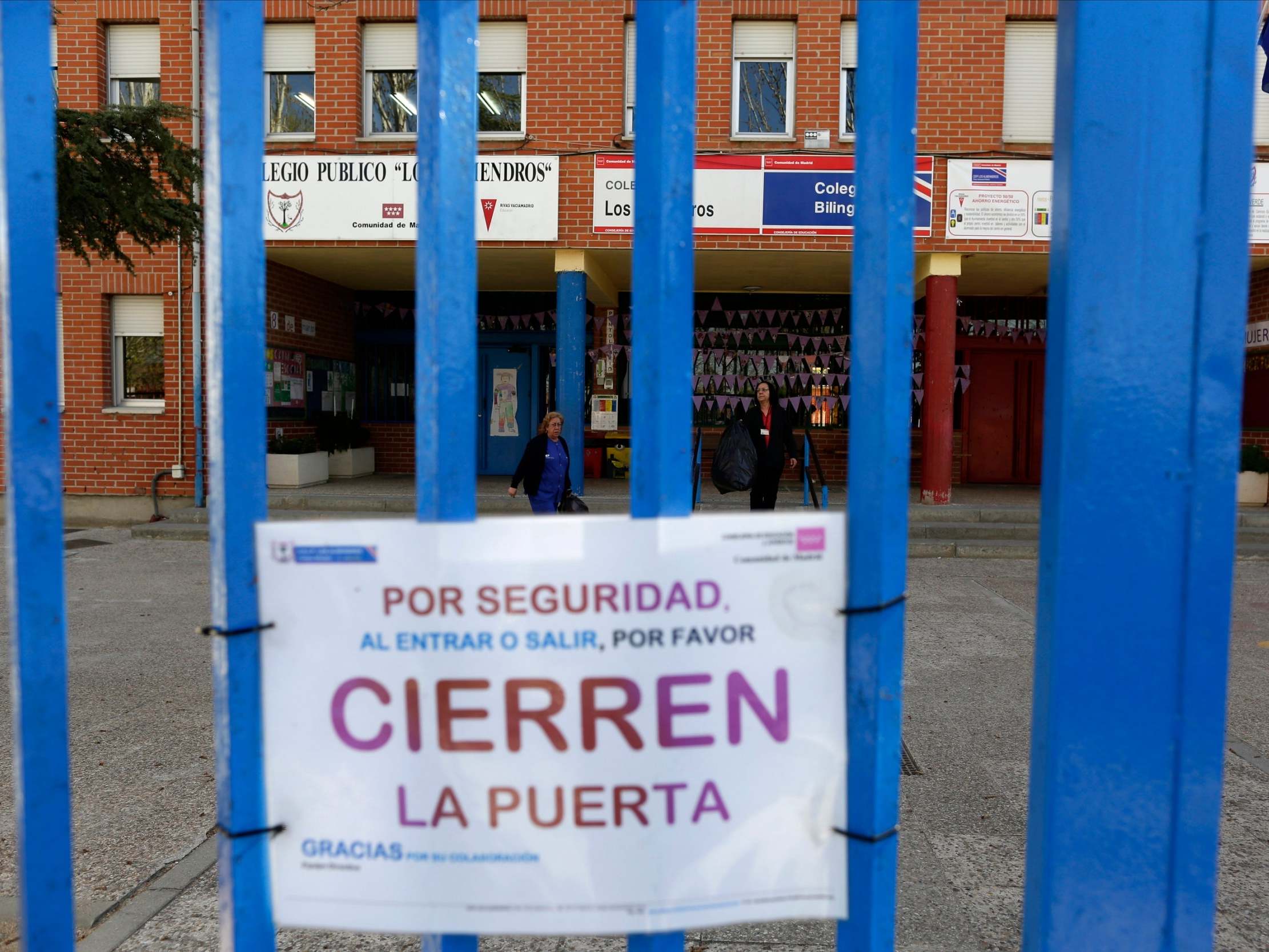Coronavirus: European countries close schools but allow children of health and public service workers to come in
Norway and Belgium measures include provisions for education facilities to remain open to help with childcare

Your support helps us to tell the story
From reproductive rights to climate change to Big Tech, The Independent is on the ground when the story is developing. Whether it's investigating the financials of Elon Musk's pro-Trump PAC or producing our latest documentary, 'The A Word', which shines a light on the American women fighting for reproductive rights, we know how important it is to parse out the facts from the messaging.
At such a critical moment in US history, we need reporters on the ground. Your donation allows us to keep sending journalists to speak to both sides of the story.
The Independent is trusted by Americans across the entire political spectrum. And unlike many other quality news outlets, we choose not to lock Americans out of our reporting and analysis with paywalls. We believe quality journalism should be available to everyone, paid for by those who can afford it.
Your support makes all the difference.Schools across Europe are being closed to protect children and prevent the spread of coronavirus, but some school facilities will remain open for children of health and public service workers.
As a slew of coronavirus prevention and control measures are hurriedly being implemented, Belgium and Norway announced provisions requiring certain school facilities to continue running to help look after children whose parents are crucial in healthcare, transport and other essential industries.
Norway announced its measures on Thursday and has shuttered all schools, kindergartens and universities but primary schools and kindergartens are to stay partially open.
Prime Minister Erna Solberg warned other parents facing sudden childcare demands not to turn to grandparents and other elderly relatives for help, as they are “particularly at risk of developing a serious illness”.
She said: “We must remind you who we should most be looking out for. We should therefore not hand over childcare to grandparents who are in the risk category.”
The measures come as Norway reported its first death from coronavirus on Thursday, which was an “elderly person” in Oslo.
The Norwegian Institute for Public Health reported a total number of 621 cases, over half of which were imported from abroad.
Belgium confirmed 556 cases of the virus on Friday and three people have died, all over the age of 70, reported Belgian news site The Bulletin.
Belgian Prime Minister Sophie Wilmes announced all schools to be closed from Friday night until after the Easter holidays, but school facilities will remain accessible for children with parents working in the healthcare sector. Creches will also remain open.
The country also ordered most shops to be closed, except pharmacies and food stores, and urged companies to allow employees to work from home wherever possible.
Schools and universities have been closed in numerous other European countries for at least two weeks, including Italy, France, Spain, Denmark, Greece, Czech Republic, Portugal, Slovenia, Romania, Ireland, Poland, Luxembourg, Estonia, Slovakia, and Lithuania.
In comparison, the UK has not advised any education institutions to close, but will only be told to specifically do so if a student or staff member tests positive for COVID-19. Schools have been advised to cancel trips abroad and to send children with symptoms of the virus home.
Guidance by Public Health England states: “If there is a confirmed case, a risk assessment will be undertaken by the educational establishment with advice from the local Health Protection Team.
“In most cases, closure of the childcare or educational setting will be unnecessary but this will be a local decision based on various factors such as establishment size and pupil mixing.”
Closing schools may result in a drop in the number of NHS workers available to help deal with the virus and expose elderly grandparents to the virus when asked to step in for childcare.
The World Health Organisation issued guidance earlier this week for schools remaining open during the outbreak, advising schools to increase airflow and ventilation, and provide children with information on hygiene practices to protect themselves.
Children do not appear to be at higher risk of contracting or dying from coronavirus than adults, who make up majority of the known cases to date, said the Centres for Disease Control and Prevention (CDC).
In general, children who have been infected by Covid-19 have presented with mild symptoms, including fever, runny nose and cough. CDC advises parents to teach them the "same things everyone should do to stay healthy", including washing hands often and avoiding sick people.
Join our commenting forum
Join thought-provoking conversations, follow other Independent readers and see their replies
Comments